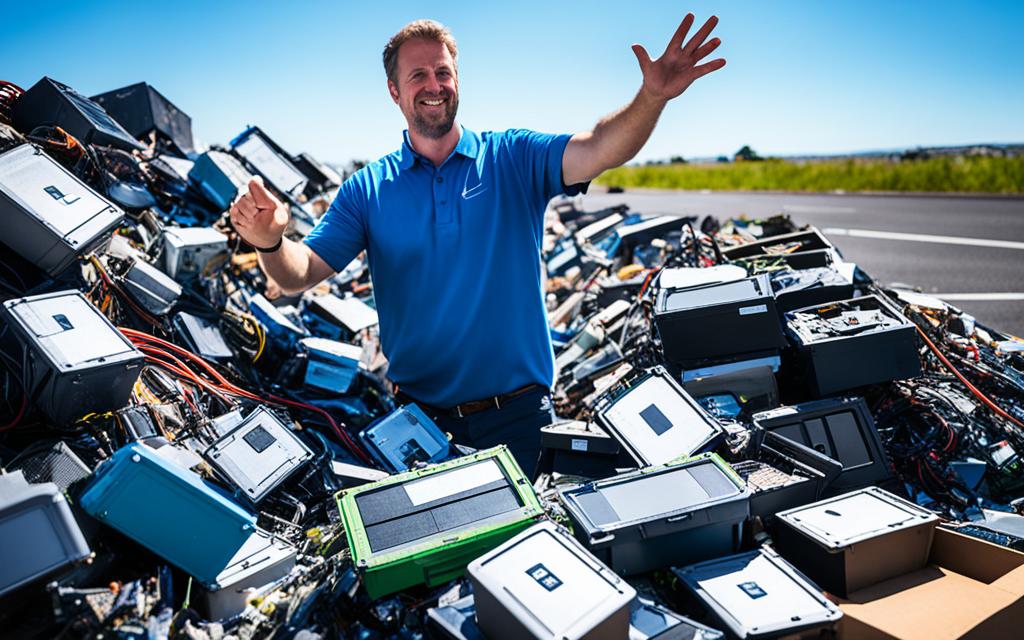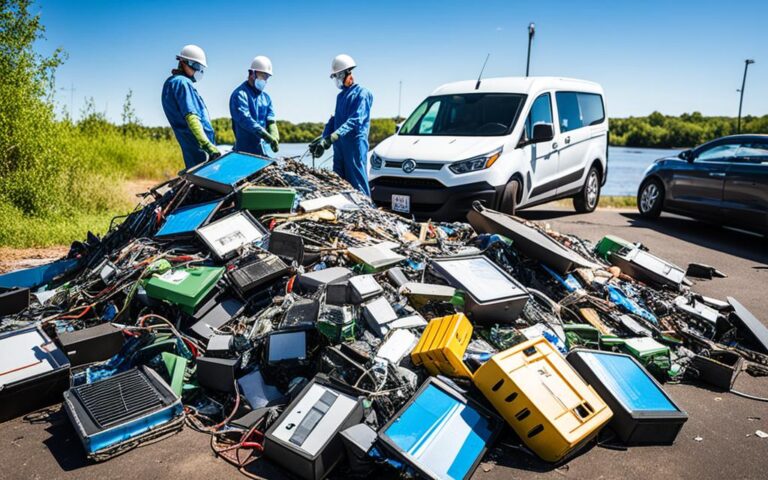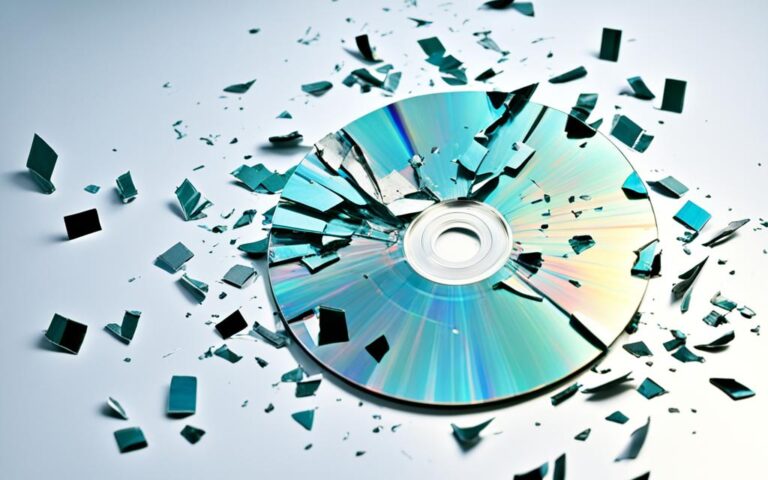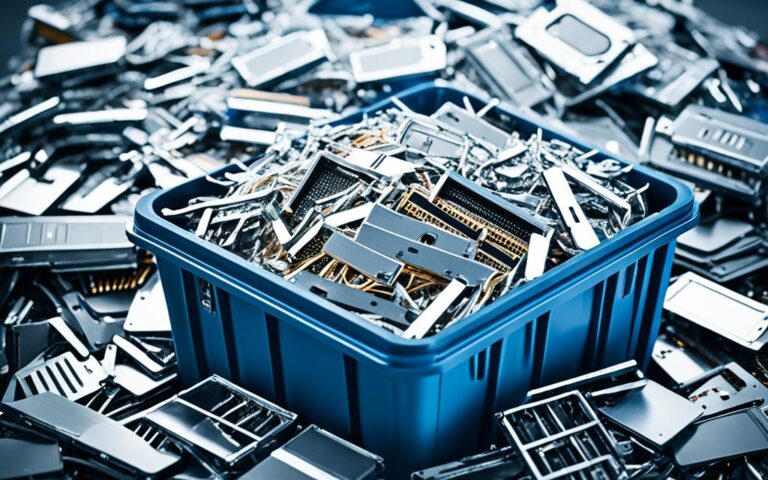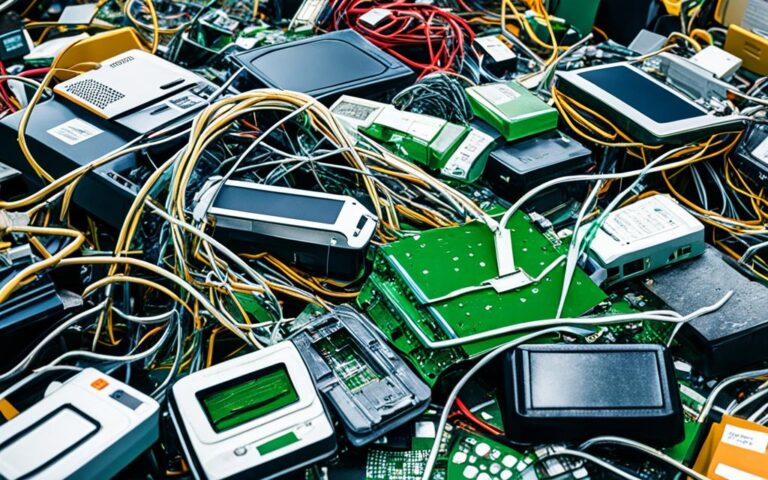The Benefits of Secure Electronic Disposal
In today’s digital age, data privacy and environmental sustainability have become paramount concerns for businesses. Secure electronic disposal offers a solution that addresses both of these issues effectively. By disposing of outdated data and data-bearing devices properly, businesses can protect sensitive information and promote a greener future.
One of the key benefits of secure electronic disposal is ensuring data privacy. With the ever-increasing amount of data being generated, it is crucial for businesses to dispose of obsolete data securely. Certified IT asset disposition (ITAD) providers offer methods such as physical shredding and digital sanitization to ensure that data is irretrievable. This not only protects businesses from potential security breaches but also helps them maintain compliance with industry regulations such as HIPAA, FERPA, CCPA, and the Sarbanes-Oxley Act.
Moreover, secure electronic disposal promotes environmental sustainability. Instead of allowing electronic devices to end up in landfills, where they can release harmful chemicals into the soil and water supply, professional electronic recycling ensures that these devices are recycled responsibly. Valuable materials can be extracted and reused, reducing the need for new mining and manufacturing. By choosing secure electronic disposal, businesses can reduce their carbon footprint and contribute to a more sustainable future.
Overall, secure electronic disposal offers numerous benefits, from safeguarding data privacy to promoting environmental sustainability. By partnering with certified ITAD providers and embracing responsible electronic recycling practices, businesses can protect their data and contribute to a cleaner, greener world.
The Importance of Certified Data Destruction
Certified data destruction plays a vital role in ensuring compliance with industry-specific regulations. This is especially crucial for businesses operating in highly regulated sectors like healthcare, finance, and education. For example, HIPAA requires organizations to take additional precautions when handling personal health information, while FERPA protects the privacy of student education records.
By implementing certified data destruction processes, businesses can securely dispose of sensitive data and mitigate the risk of fines, license revocation, and reputational damage. Certified IT asset disposition (ITAD) providers offer compliant security services to assist businesses in avoiding costly security breaches. These services include audits and secure chain of custody procedures.
Partnering with certified data destruction providers allows organizations to ensure the proper disposal of their electronic devices while minimizing liability and upholding data stewardship.
“Certified data destruction ensures compliance with industry-specific regulations, safeguarding sensitive data and protecting organizations from fines and reputational damage.”
The Benefits of Certified Data Destruction:
- Guaranteed compliance with industry-specific regulations
- Secure disposal of sensitive data
- Minimization of fines and reputational damage
- Compliant security services to prevent security breaches
- Audits and secure chain of custody procedures
To better understand the significance of certified data destruction, consider the following:
“Implementing certified data destruction processes safeguards organizations against the risk of non-compliance with industry regulations and helps protect sensitive data from falling into the wrong hands.”
For visual representation, refer to the diagram below:
| Certified Data Destruction | Benefits |
|---|---|
| Ensures compliance with regulations | Safeguards sensitive data |
| Minimizes fines and reputational damage | Compliant security services |
| Audits and secure chain of custody | Prevents security breaches |
By prioritizing certified data destruction, businesses can maintain compliance, protect sensitive data, and mitigate potential risks associated with security breaches and non-compliance.
The Advantages of Professional Electronic Recycling
Professional electronic recycling services offer several advantages over traditional disposal methods. Firstly, they provide secure value recovery for unwanted computer equipment, ensuring that data is properly disposed of and preventing it from falling into the wrong hands. This is especially crucial for businesses that handle private user information, documents, or intellectual property.
Secondly, professional electronic recycling is cost-effective. Rather than destroying old devices, which can be wasteful and expensive, recycling allows for refurbishment and selling of equipment, providing a return on investment.
Thirdly, electronic recycling promotes environmental sustainability by diverting e-waste from landfills. Recycling helps reduce the release of toxic chemicals from electronic devices into the soil, water supply, and ecosystem. Furthermore, it supports the circular economy by reusing valuable materials and reducing the need for new mining and manufacturing.
Lastly, professional electronic recycling is practical, as it allows businesses to outsource the disposal process, freeing up resources to focus on core operations.
| Advantages of Professional Electronic Recycling |
|---|
| Secure value recovery for unwanted computer equipment |
| Cost-effective by refurbishment and selling of equipment |
| Promotes environmental sustainability by diverting e-waste from landfills |
| Supports the circular economy by reusing valuable materials |
| Practical outsourcing of the disposal process |
Positive Impacts of E-Waste Recycling
E-waste recycling plays a vital role in creating a cleaner environment, boosting the economy, and supporting local communities. By responsibly recycling electronic waste, we can achieve significant benefits for our planet and future generations.
Reducing Environmental Pollution
Recycling e-waste helps keep harmful materials such as mercury, lead, cadmium, and flame retardants out of landfills. These materials can contaminate the soil and water, posing serious risks to human health and ecosystems. By diverting e-waste to recyclable streams, we can minimize environmental pollution and protect our precious natural resources.
Preventing Battery Leakage
One of the critical advantages of e-waste recycling is the prevention of battery leakage. Batteries contain toxic heavy metals and chemicals that, when disposed of improperly, can seep into the soil and groundwater. By recycling batteries, we can minimize the risk of environmental contamination and safeguard our water sources.
Supporting the Circular Economy
E-waste recycling contributes to the circular economy by recovering valuable base materials from discarded electronics. These materials can be reused instead of extracted from the earth, reducing the need for new resources. By embracing the circular economy, we can minimize energy consumption and limit the environmental impact of resource extraction and manufacturing.
“Recycling turns things into other things, which is like magic.” – Anonymous
Creating Opportunities for Charitable Organizations and Non-Profit Initiatives
E-waste recycling supports local economies by creating opportunities for charitable organizations and non-profit initiatives. By donating old electronics or their raw materials to these organizations, businesses can contribute to building homes, supporting students, and conserving natural resources. Together, we can make a meaningful difference in the lives of others.
| Positive Impacts of E-Waste Recycling | |
|---|---|
| Reducing environmental pollution | ✓ |
| Preventing battery leakage | ✓ |
| Supporting the circular economy | ✓ |
| Creating opportunities for charitable organizations and non-profit initiatives | ✓ |
In summary, e-waste recycling not only benefits our environment by reducing pollution and preventing hazardous leakage but also supports a more sustainable future. By embracing responsible e-waste recycling practices, we can create a cleaner world and ensure the well-being of both current and future generations.
The Future of E-Waste Recycling
The volume of e-waste generated worldwide is increasing at an alarming rate. If not addressed, this trend will lead to significant environmental and health hazards. Responsible e-waste disposal is key to combating this growing issue. By raising awareness about the benefits of recycling and promoting sustainable practices, we can create a better future for generations to come.
Businesses should consider the environmental impact before disposing of their old electronics and embrace the advantages of recycling responsibly. Recycling initiatives and collaborations between organizations and recycling companies play a vital role in ensuring the proper disposal and recycling of e-waste.
The Environmental Impact of E-Waste
E-waste contains various hazardous materials, including heavy metals and toxic chemicals, that can leach into the soil and water when discarded improperly. This poses a significant threat to ecosystems and human health. However, responsible e-waste recycling mitigates these risks by safely extracting valuable materials from electronic devices and minimizing the release of pollutants.
Furthermore, recycling e-waste reduces the need for raw materials and energy-intensive manufacturing processes. This contributes to the conservation of natural resources and helps combat climate change. By recycling electronic waste, we can significantly reduce greenhouse gas emissions and promote a more sustainable future.
Innovation and Recycling Initiatives
Advancements in technology and recycling processes are driving innovation in the e-waste recycling industry. Companies and organizations are developing new methods to extract precious metals, recover rare earth elements, and safely dispose of harmful substances.
Government regulations and policies are also playing a crucial role in promoting e-waste recycling. Many countries have implemented legislation that requires manufacturers to take responsibility for the proper disposal and recycling of their electronic products. These regulations encourage the development of more sustainable and environmentally friendly practices throughout the electronics supply chain.
Collaborative efforts between businesses, governments, and consumers are essential for the success of recycling initiatives. By educating the public and providing convenient recycling options, we can encourage widespread participation and increase the effectiveness of e-waste recycling programs.
Building a Sustainable Future
E-waste recycling is not just an environmental responsibility; it is also an economic opportunity. The proper disposal and recycling of electronic devices create jobs and contribute to the growth of a sustainable circular economy.
| Benefits of Responsible E-Waste Recycling | Benefits of Responsible E-Waste Recycling |
|---|---|
| Reduces environmental pollution and the release of toxic substances | Creates job opportunities and contributes to economic growth |
| Conserves natural resources and reduces the need for raw materials | Promotes the development of innovative recycling technologies |
| Minimizes energy consumption and greenhouse gas emissions | Encourages the adoption of sustainable practices by businesses and consumers |
The future of e-waste recycling relies on a collective effort to responsibly dispose of electronic devices, raise awareness about the environmental impact of e-waste, and support recycling initiatives. By making informed choices and actively participating in e-waste recycling efforts, we can contribute to a cleaner and more sustainable world.
Conclusion
Businesses today face the challenge of secure data disposal and electronic recycling. However, by embracing certified data destruction and professional electronic recycling services, they can unlock a myriad of benefits.
Certified data destruction ensures data privacy and adherence to industry regulations, reducing the risk of security breaches and potential liabilities. Moreover, professional electronic recycling not only provides secure value recovery but also actively promotes environmental sustainability and supports the circular economy. By opting for secure electronic disposal and responsible e-waste recycling, businesses can safeguard their data, protect the environment, and contribute to a more sustainable future.
Discover the comprehensive server recycling solutions offered by [IT Recycle](https://it-recycle.uk/server-recycling-uk/) and make informed choices towards secure data disposal and professional electronic recycling. Together, let’s ensure a secure, sustainable, and eco-friendly approach to managing electronic waste.
FAQ
What are the benefits of secure electronic disposal?
Secure electronic disposal offers numerous benefits, including safeguarding data privacy and promoting environmental sustainability. It ensures that data is properly disposed of and prevents it from falling into the wrong hands. Additionally, it helps businesses maintain compliance with industry regulations and reduce their carbon footprint through the refurbishment and reuse of serviceable equipment.
Why is certified data destruction important?
Certified data destruction is essential for maintaining compliance with industry-specific regulations. It ensures the secure disposal of sensitive data and helps businesses avoid fines, loss of licenses, and damage to their reputation. Certified IT asset disposition providers offer compliant security services, such as audits and secure chain of custody procedures, to minimize security breaches and liabilities.
What are the advantages of professional electronic recycling?
Professional electronic recycling offers several advantages. It provides secure value recovery for unwanted computer equipment, ensuring that data is properly disposed of and preventing it from falling into the wrong hands. It is also cost-effective, as it allows for the refurbishment and selling of equipment, providing a return on investment. Additionally, it promotes environmental sustainability by diverting e-waste from landfills and supports the circular economy by reusing valuable materials and reducing the need for new mining and manufacturing.
What positive impacts does e-waste recycling have?
E-waste recycling has numerous positive impacts. It helps keep harmful materials such as mercury, lead, cadmium, and flame retardants out of landfills, reducing environmental pollution and protecting soil, water, and ecosystems. It also prevents battery leakage, which can contaminate the soil and groundwater with toxic heavy metals and chemicals. Furthermore, e-waste recycling supports the local economy by creating opportunities for charitable organizations and non-profit initiatives, contributing to building homes, supporting students, and conserving natural resources.
What is the future of e-waste recycling?
The volume of e-waste generated worldwide is increasing at an alarming rate. Responsible e-waste disposal is key to combat this growing issue. By raising awareness about the benefits of recycling and promoting sustainable practices, we can create a better future for generations to come. Ongoing recycling initiatives and collaborations between organizations and recycling companies play a vital role in ensuring the proper disposal and recycling of e-waste.
How does secure electronic disposal and professional electronic recycling contribute to a sustainable future?
Secure electronic disposal and professional electronic recycling offer significant benefits for businesses. Certified data destruction ensures data privacy and compliance with industry regulations, reducing the risk of security breaches and liabilities. Professional electronic recycling provides secure value recovery, promotes environmental sustainability, and supports the circular economy. By choosing secure electronic disposal and responsible e-waste recycling, businesses can safeguard data, protect the environment, and contribute to a more sustainable future.

